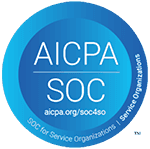By Peggy E. Chait
We have all learned the concept of assigning blame since we were children. Who among us did not chant at the top of our voices in unison, “Who stole the cookie from the cookie jar? Who me? Yes you. Couldn’t be. Then who?” Pointing our finger and the act of CYA (cover your a…) go hand in hand in our litigious society and Regulators encourage us to assign responsibility in order to make their jobs more lucrative and easier. Yes, I know about whistleblowers and the need to protect them for the betterment of society, and I am in agreement about the dangers of retaliation given their whistleblowing revelations. No contest there. What I would like to examine now is FINRA’s semi‐confessional Regulatory Notice 22‐10 on Supervision.
What I have learned in my almost 42 years in our illustrious business is the act of “netting.” No, not commissions against charges, but the idea of throwing out the fisherman’s net to catch anything or anyone that is within its reach. The Chief Compliance Officer has always been in a precarious position because the title “Chief” carries with it tremendous responsibility and culpability. The title alone practically guaranteed that this individual would be held accountable and liable for any non‐intentional, potential violation of securities laws, even if whatever the charges that the CCO was charged with violating was not at all within their domain and supervision. They fell within the “net.” Guilty until proven innocent. The “Regulators Way.”
FINRA has now actualized its thought process through Regulatory Notice 22‐10 by giving us a “head start” in the race to blame. Supervision (somehow, I hear the word sung to Fiddler on the Roof’s “Tradition”) and the words that make us cower, “failure to supervise” has been addressed in the notice. Although the notice professes that with regard to supervisory obligations, “the responsibility to meet these obligation rests with a firm’s business management, not its compliance officials,” and just like the word love, its sounds better as a word then in practical application. Since when is a Chief Compliance Officer’s role advisory and not supervisory? The notice indicates that “FINRA will look first to a member firm’s senior business management and supervisors to determine responsibility for a failure to reasonably supervise” May I let out a little “ha”? What alternate universe are they living in? Perhaps the largest of Broker/Dealers can get away with that line of rationale, but what about the smaller firms? What happens to the fairness of this application in a firm in which there are not existing departments to support its compliance functions? Who is in the line of fire then? The Senior Business Management? Often times, they are too busy focusing on the firm generating income to the point where they have no involvement, nor want any, in the day‐to‐day responsibility for compliance issues. Perhaps no delineation exists between Senior Business Management and the Head of Compliance. In the smaller firms, FINRA can target the individual and hold them responsible. In large Broker/Dealers, the firm, not the individual takes the bulk of the blame. Once again, FINRA fails to see that not all Broker/Dealers are equal in its capability in meeting their criteria. The difficulty in keeping up with the Regulator’s demands is one of the reasons that there has been an onslaught of small firms withdrawing their registrations as Broker/Dealers and that many qualified individuals have been chased away from the industry. In the end, FINRA’s mission of “Market Integrity and Investor Protection” has gone awry, as so many of its findings are not so egregious as to ever touch the integrity of the market or encroach upon the protection of an investor!
This all leads me to the real point I want to espouse. If by FINRA’s standards a CCO’s role is advisory, not supervisory, the relief that one may feel by this statement may be short lived when followed by these words, “A CCO will be subject to liability under Rule 3110 only when—either through the firm’s written supervisory procedures or otherwise—the firm designates the CCO as having supervisory responsibility.” May I let out another “ha”? I can count on my pretty little polished fingers the number of times that I have ever seen Written Supervisory Procedures that have not placed the ultimate and majority of compliance responsibilities on the Chief Compliance Officer.
So, what does this all mean for you? It means that your Written Supervisory Procedures must be read with a fine‐tooth comb to analyze each nuance of supervisory responsibility and assign it accurately and within reason to each person that is truly responsible for the oversight assigned, so as to mitigate any potential liability.
Our highly trained compliance staff are able to extract the information and designation of responsibilities within your Written Supervisory Procedures, analyze them and assess whether they accurately reflect your supervisory system. We can also help you determine which responsibilities may be designated to another Associated Person or Registered Person. Do not leave yourself vulnerable!!! The writing is “on the wall” as well as within the Regulatory Notice. The Regulators are giving firms their notice... we will be looking at this closely!
We at Integrated Solutions want to help you navigate this topic and are well equipped to do so. Please contact us if we can be of help to you with this or any other compliance or financial related issue.





